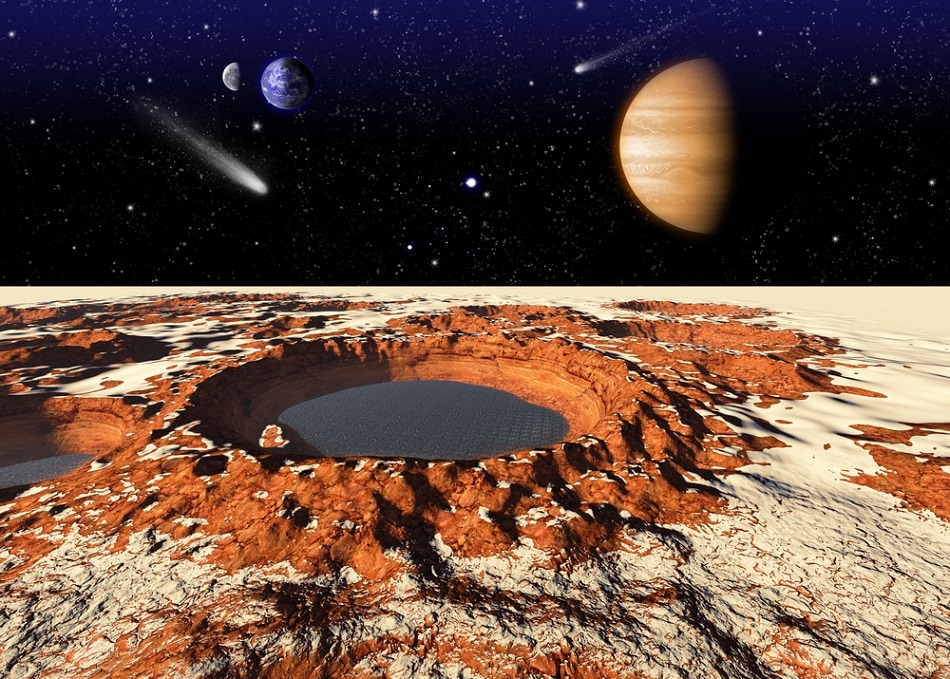Oct 16 2017
New insight into the limits of life on the red planet has been provided by Researchers exploring the possibility of liquid water existing on Mars.
 Flashinmirror/ Shutterstock.com
Flashinmirror/ Shutterstock.com
A team headed by Dr Lorna Dougan from the University of Leeds has analyzed the structure of water present in a magnesium perchlorate solution - what is known as "mimetic Martian water" – in order to improve their understanding of how the liquid could exist on the Martian surface.
Calcium and powerful oxidants, including magnesium perchlorate, were found in Martian soil samples gathered by the Phoenix Lander in 2009. This indeed fuelled speculation that perchlorate brine flows could be the cause of channeling and weathering observed on the surface of the planet.
The discovery of significant amounts of different perchlorate salts in Martian soil gives new insight into the Martian 'riverbeds.' The surface temperatures on Mars may reach a high of about 20°C at the equator and as low as -153° Celsius at the pole. With an average surface temperature of -55° Celsius, water itself cannot exist as a liquid on Mars, but concentrated solutions of perchlorate could survive these low temperatures.
Dr Dougan, The School of Physics and Astronomy and The Astbury Center
The team succeeded in refining and analyzing the structure of mimetic Martian water through experiments performed at the ISIS Facility and computer modeling.
The outcome of their analysis, published in the Oct 13th issue of Nature Communications, demonstrates that the magnesium perchlorate solutions have an intense impact on water structure. The effect of the perchlorate corresponds to pressurizing pure water to 2 billion pascals or more. The team also observed that the ions in the water become partly segregated and it is likely that it is this segregation that stops the liquid from freezing.
We found these observations quite intriguing. It gives a different perspective of how salts dissolve in water. The magnesium perchlorate is clearly a major contributing factor on the freezing point of this solution and paves the way for understanding how a fluid might exist under the sub-freezing conditions of Mars.It raises interesting questions about the possibility of life on Mars. If the structure of Martian water is highly pressurized, perhaps we might expect to find organisms adapted to high pressure life similar to piezophiles on Earth, such as deep sea bacteria and other organisms that thrive at high pressure.
Dr Dougan, The School of Physics and Astronomy and The Astbury Center
"This highlights the importance of studying life in extreme environments in both terrestrial and non-terrestrial environments so that we can fully understand the natural limits of life.” Dr Dougan added.